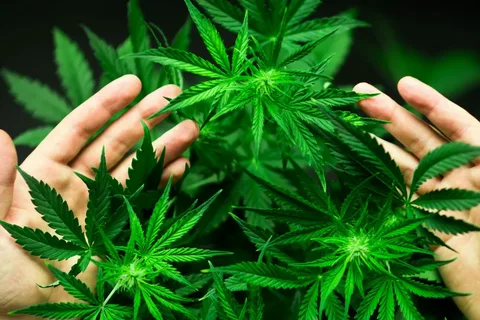In recent years, the perception of cannabis has undergone a significant transformation. Once viewed primarily as a recreational substance, it is now increasingly recognized for its potential in promoting wellness and self-care. This shift is part of a broader trend towards natural and holistic approaches to health and well-being.
Read on to learn how cannabis redefines self-care.
Table of Contents
Historical Context and Modern Acceptance
Cannabis’s journey from ancient medicinal use to modern wellness tools reflects a remarkable shift in societal attitudes. Cultures worldwide have utilized it for centuries, recognizing its therapeutic properties.
Only recently, however, has scientific research substantiated these traditional uses, revealing cannabis’s potential in treating various ailments. This scientific validation has catalyzed its acceptance in the medical community, transforming it from a stigmatized substance to a respected component in health and wellness practices.
The Therapeutic Compounds in Cannabis
The wellness attributes of cannabis largely stem from its key compounds: THC and CBD. THC, the psychoactive element, has garnered attention for its mood-altering effects, which are beneficial in specific therapeutic contexts. CBD, on the other hand, offers health benefits without inducing a ‘high.’
Crucially, these compounds interact with the body’s endocannabinoid system, influencing everything from pain perception to immune response. This highlights cannabis’s potential as a versatile therapeutic agent for a broad range of physiological issues.
Cannabis and Mental Health
Cannabis has emerged as a promising tool in mental health care. It is said that its efficacy in easing symptoms of anxiety, depression, and stress makes it a valuable adjunct to traditional therapies. Its calming effects, attributed mainly to CBD, offer a natural alternative to pharmaceutical interventions.
Many individuals report significant improvements in their mental well-being when incorporating cannabis into their self-care routines, underscoring its potential as a complementary approach to mental health management.
Effects of Weed Dehydration
An important consideration in using cannabis for wellness is the potential for dehydration, often referred to as weed dehydration effects. These side effects can detract from the overall benefits of cannabis use. Dehydration can exacerbate health issues and diminish the body’s ability to recover and maintain homeostasis.
Users should be mindful of hydration levels, as maintaining proper hydration is essential for maximizing the therapeutic benefits of cannabis while minimizing adverse effects on wellness. For more information about the impact of weed dehydration, check out reputable resource websites.
The Physical Health Benefits of Cannabis
Beyond mental health, cannabis has shown efficacy in addressing physical health challenges, notably in pain management. It is particularly beneficial for chronic pain sufferers, offering an alternative to traditional painkillers. Its anti-inflammatory properties are also crucial, potentially aiding in treating various inflammatory conditions.
This versatility in addressing both acute and chronic physical conditions highlights cannabis’s role as a multifaceted therapeutic agent in the realm of physical health and wellness.
Cannabis in Skincare and Beauty
Cannabis, especially CBD, is making strides in the skincare and beauty industry. It is recognized for its anti-inflammatory and antioxidant properties and is becoming a popular ingredient in various skincare products.
These products claim benefits such as improved skin health, reduced acne, and anti-aging effects, making cannabis a sought-after component in beauty regimens. This application demonstrates the versatility of cannabis, extending its wellness impact beyond internal health to include aesthetic and dermatological benefits.
Challenges and Considerations
Despite its growing role in wellness, the use of cannabis is not without challenges. Legal and regulatory frameworks regarding cannabis use vary significantly, posing obstacles to universal acceptance and access. Additionally, the stigma surrounding cannabis persists, affecting user perception and acceptance.
Another critical factor is product quality and concentration inconsistency, necessitating informed consumer choices. These challenges underscore the need for ongoing education, research, and policy development to integrate cannabis into mainstream wellness practices fully.
Wrapping Up: A Promising Yet Evolving Landscape
The incorporation of cannabis into wellness and self-care practices marks a significant shift in how this plant is perceived and used. As research continues to uncover its benefits and limitations, cannabis is poised to play an increasingly important role in the wellness industry. However, individuals must approach its use thoughtfully, considering its potential benefits and limitations.





